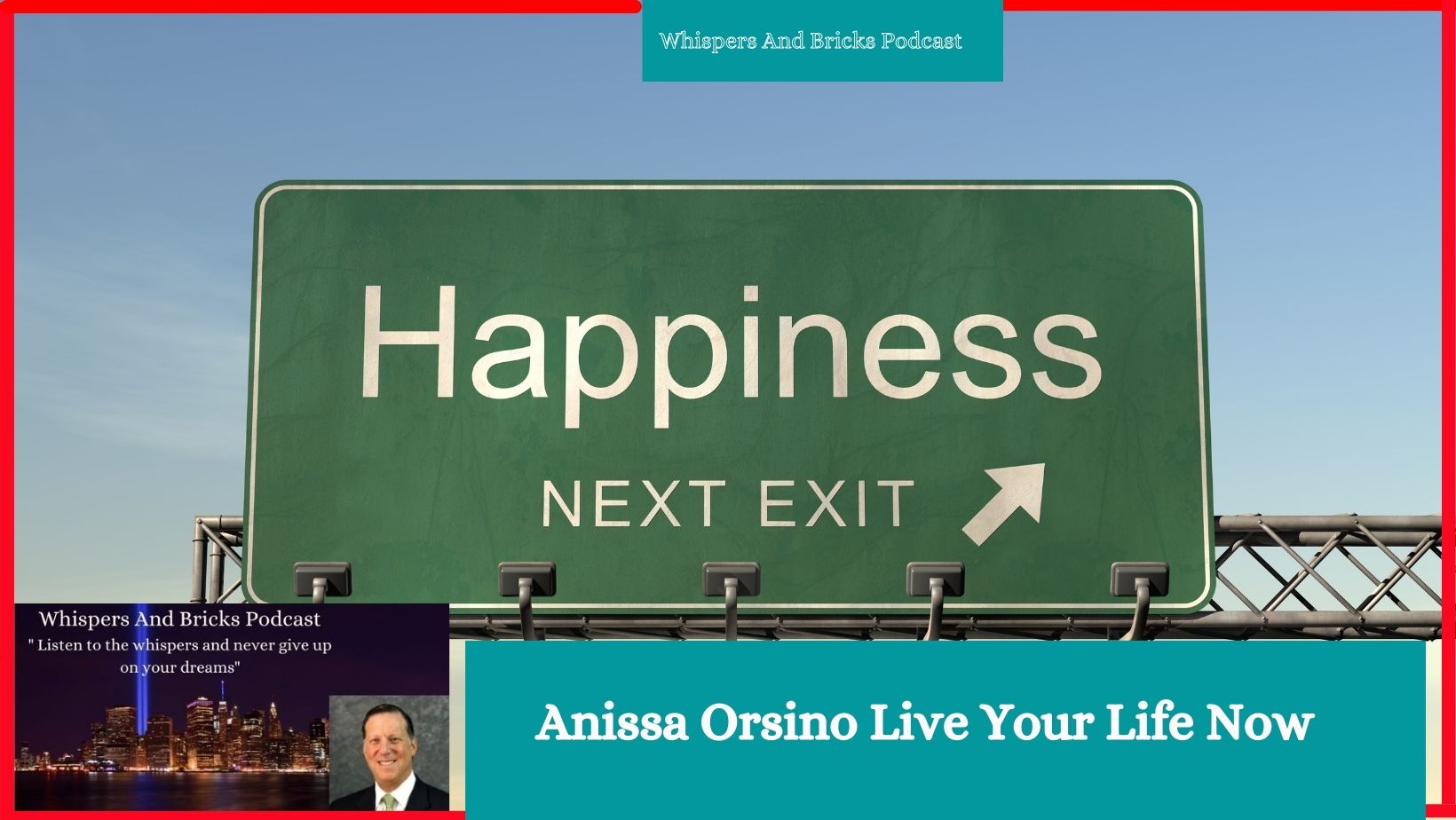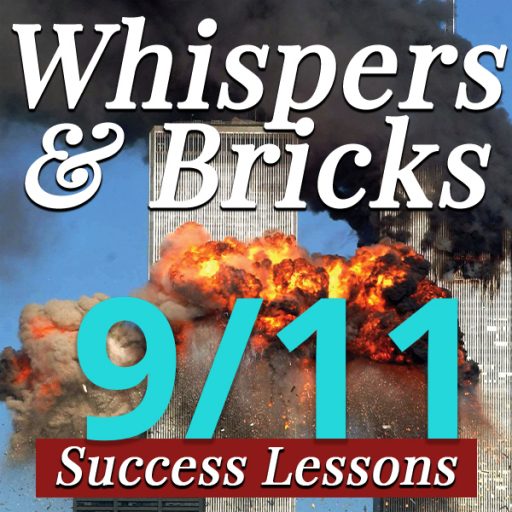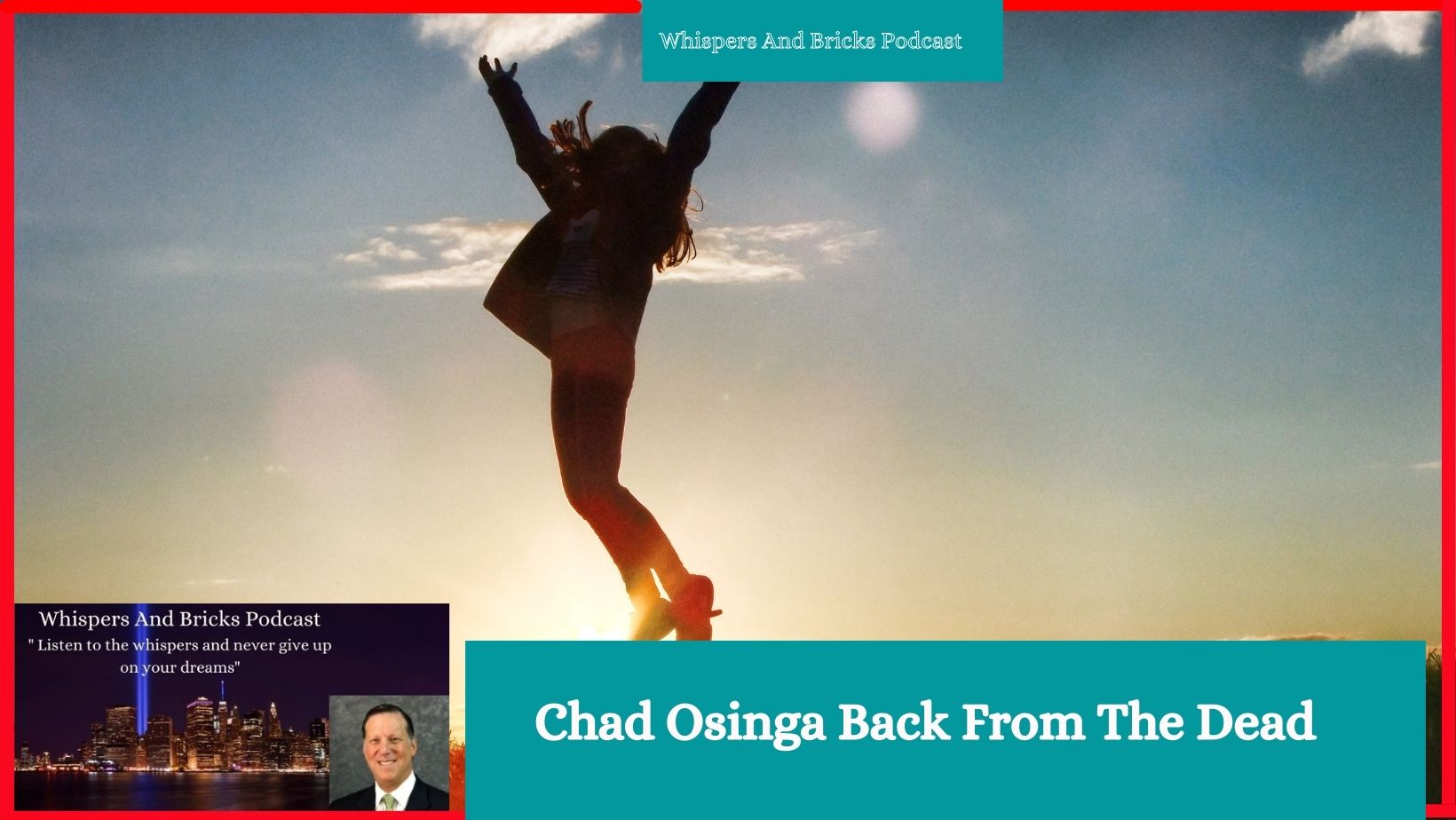
101. Anissa Orsino Live Your Life Now

Anissa Orsino Live Your Life Now
Anissa Orsino Live Your Life Now
Show notes:
Website: https://mamagoesbeyond.com/
Email:
Summary: Anissa had a perfect life as a professional singer and a stay-at-home mom to her 2-year-old with a new baby on the way she couldn’t complain when her entire life changed when she was diagnosed with breast cancer. She learned to live her life for the moment and she now helps other people live a life they. love. She reminds us to start living our life now!
Ari: Welcome to whispers and breaks My name is Ari Schonbrun, I’m your host. My guest today is me silver see no. She’s always had a lust for life. But a bout with breast cancer at age 37. While she was pregnant with their second child back in 2014, made her even more passionate about living life to the fullest in the years since she completed treatment, and he said a new set ran her first and only marathon sailed the oceans on vessels ranging from catamarans to Disney cruises. For further lifelong dream of hiking the Inca Trail and Peru and seeing Machu Picchu. In addition, a nice scent our family got rid of nearly everything they owned back in 2019 to travel full time as a family. They World School their two young boys in Spain and the Dominican Republic before COVID-19 put their travel plans temporarily on hold. They are now living in a minimalist life in Las Vegas. And Isa believes that being diagnosed with breast cancer was a huge gift. It reminded her not to take her precious life for granted, taught her that she was never promised the 100 or so years on this planet that she’d always assumed she had and connected over the support system. She hadn’t realized surrounded her nieces on a mission to teach our fellow moms and sister survivors that happiness is a choice that life is for living. And that by implementing a few simple practices, we can all create lives that we love, no matter our circumstances. And these two talks about living with intention and crafting a simple, efficient and joyful life both on our blog Baba goes beyond enter podcast the optimized Rob, please help me welcome a Anissa Orsino. And Lisa, are you today? I am super how are you?
Annissa: I am awesome.
Ari: Thank you so much for joining us on the podcast today. We’re super excited to have you here. Oh, that’s That’s wonderful. Now, as you know, the name of this podcast is whispers of bricks. whispers are those voices telling us what the right thing to do is and they represent the good in life. And the bricks represent the bad things that we go through in life. Now let’s be real. Everybody gets hit with a brick with gets hit with a brick during their lifetimes, whether it’s one, whether it’s many, whether they’re small, whether they’re big, but life is not a straight line. It’s got ups and downs, and we got to go through some tough times and nobody is immune. Now with you, it looks like things are kind of grown great for you when you were growing up. You have a master’s in opera singing, you spent you. You spent your 20s Traveling the world singing opera, you decided to settle down and become a stay at home mom. I mean, this is this is nirvana. I mean, you had it. And it really did. And then you got hit with a brick called breast cancer. And at the age of 37, you were 34 weeks pregnant with your second child that time. Tell us about that period of your life. How did you find out Yeah, cancer? How did you treat it? What did you do what was going on?
Annissa: So I mean, as you said, I had a pretty great life. I always say if you asked me before May 12 2014 with the worst day of my life was I would not have had an answer for you. I mean, I couldn’t even come up with anything that was you know, pretty bad. I had a great lunch. I had a two year old at home and was as you said 34 weeks pregnant. I was showering the one morning and noticed the lump and you know it’s one of those kinds of things you hear your breasts change when you’re pregnant. I honestly i So thought it was nothing that I almost didn’t mention it at my next appointment with my OBGYN and it was only he was walking out the door and I said hey, I just before you go I noticed this one but I’m sure it’s nothing but you know, would you just check it out for me? And thank goodness because I know if I had not been pregnant I would not have gone to the doctor for this because I just for me it was I It’s not, I’m not a person who gets cancer. I eat an organic diet, I make my own cleaning supplies. I don’t use plastic, you know, I don’t use a microwave like I, if I heard it give you cancer, I did not do it. So I just, you know, I’m living the right life, I’m getting an A plus in life, and I will live to be 100. Because you that’s how it works. This is honestly my philosophy. So he’s walking out the door. And I said, I’m sure this is nothing will you just take a look at it for me and he walked back in, check the lawn, he said, I’m not sure it’s nothing. And that day he sent me downstairs in the same building was a breast imaging center. They did an ultrasound, they did a biopsy that day. And this, I think was a like a Thursday, I waited over the weekend. And then on Monday, I got the call that I had to come in. And I knew when they were having they come in and weren’t telling me over the phone. It was not good news. Wow.
Ari: Wow. So So what happened? I mean, you’re, you’re 34 weeks pregnant, and this huge, you get hit with this huge brick. What was your mood? Like? What was you know, how were you? What were you feeling?
Annissa: I think it was just like Tara was the first word that popped into my head. But overwhelm was the second one I, my personality is such that I would not buy a vacuum cleaner without researching it for like a month and reading 1000 reviews. And then you get thrown into this world where it’s like, this is an emergency and everything has to happen right now. And you’re making these decisions about who’s going to be the doctor that does this. And who’s going to be the surgeon that does this. And do you want, you know, this treatment or this treatment, and they’re doing all these tests, because when you’re pregnant, of course, there are other things to consider you’re considering your unborn child as well. And so they were doing the sorts of tests where they would say, Well, if this comes out that we think the cancer we can’t do the tests we would normally do to see what stage your cancer is. But if we do this test, and we think that your cancer has spread, we’re just gonna go ahead and let you carry your child to term. Because basically, we can’t do anything for you. Or if this test comes up negative, then you’re having a C section on Monday, because then the baby will be 35 weeks, and we need to get him out and get you started on treatment as soon as possible. And so it was just things every day, it was these kinds of things like, you know, these major decisions that normally would take me months, you’re doing just instantaneously or in a matter of hours, we were living in a two bedroom apartment, I remember going to see the oncologist and I said am I going to be able to take care of my kids by myself? And he said no. So then we had to move into a bigger apartment. So that my parents, thankfully could come up and move in with us. But it was like we I was packing a box when Monday and trying to hurry up and pack it because I was about to have go and have tea section to you know, get my son born so that I could start chemo in eight days. Yeah, it was just way too fast.
Ari: Wow. What was your What was your husband thinking feeling? You know, how did this affect him?
Annissa: This, my husband’s superpower is that he is the guy who just, if everyone else is falling apart, he just picks up he looked around to see what needs to be done. And he just does it. And so he was great. You know, it was he had he was in tremendously challenging job at the time, he was the chief operating officer of his company. So he was still working full time, he was still traveling, but he was coming with me to appointments and trying to make things normal for our two year old and putting up with his in laws all the time. But he’s really I have seen him, you know, throughout our life, like together in lots of crises. And he’s just one of those guys that’s able to kind of compartmentalize it and grieve on his own time and be nervous in his own time. But he goes into like action mode. And so he was really kind of the ideal person to have with you when everything’s falling apart like that.
Ari: Wow. to ever reach a point that, like you hit rock bottom, where you said to yourself, you know what, they can’t do this anymore. You know, I just I just give up. You know, it’s you know, two kids, you know, my husband, he’ll be able to take care of them. And you know, I’m gone. I’m out. See you later. No. Oh, wow. Wow.
Annissa: I remember sitting on the couch one day and thinking, I bet this is what But it feels like right before you die because I was so sick. I mean, I remember just feeling miserable. But I used to wear I had a bracelet that I wore that I had engraved on the inside failure is not an option. And I had when I would sit at chemo, there’s a song that I loved called. This is why we fight by a band called The Decemberists. And I used to just put it on repeat while I was sitting in chemo. And I would look at photos to the boys. And it was just like, you know, at this point, if if I had died at that time, you know, I, for sure the littlest one would not have known me at all, but even the two year old would probably have forgotten me. And I just it was just unacceptable. So my inner narrative the whole time was, you know, this needs to be beaten. This is not something that you know, that I can let knock me down kind of thing. And I did some unfortunate googling one night and saw a statistic that my stage and grade and type of breast cancer, where I was the fire survival rate was 25%. So I knew that the odds were not super. But you know, my philosophy about it was just that failure was not an option. I needed to beat it. And so yeah, so that’s what,
Ari: wow, so you were a fighter, obviously, that’s for sure. That’s truly amazing. I’m sure your kids are thrilled to death that mommy was a fighter. I’m sure your husband was thrilled to death, the mommy was a Friday.
Annissa: But I wouldn’t say that I did have to really fight for my attitude. You know, you talk about hitting rock bottom, I do. Remember, I was sick in the summer. And I remember getting really angry about that, you know, other people were just out enjoying their summer, and they were out at the beach, and, you know, go into the pool and all that kind of stuff. And I was you know, sick in bed and that I really did have to cultivate this like, okay, what can I be grateful for today? That is good. Because I’m getting angry, and miserable and mad at the world, like I’m mad enough at the world that I will beat this thing. But I don’t want to be a miserable human being while I’m at it. And even when you’re in the midst of that horrible circumstance, there was so much awesome stuff in my life to be grateful for when I looked for it, but I really had to look for it.
Ari: Wow. But so I mean, even though you had to look for it. The issue is you found it, you found the strength you found, you know, that inner strength that was that said, No, you know, I am going to be this I am a nice person, I’m not going to be a miserable wretch, even though I feel like a miserable wretch. But I am not going to let this thing beat me. And I’m going to be there for them the same way that they’re there for me. I mean, that is that is absolutely amazing. It’s just, it’s incredible.
Annissa: Well, thanks. But I think I think we all have that capacity in us. I think, you know, when you get in these situations, other people look at you like, wow, I could never do that. I think people do this kind of thing every day and respond with grace. I think it’s more common that people respond that way than the other way. We all think we wouldn’t behave that way. But you know, I think a lot of people do. I’ve met a lot of sister survivors out in the world that really rose to the occasion, and lots of people who are dealing with worse things than I was dealing with it have come out, you know, sparkling it’s just a matter of making that that choice to not be crushed by something.
Ari: Right? Well, you know, again, one of the reasons I started whispers and bricks, was because there are people out there that are going through different things. And they don’t understand very often that there are other people out there going through the exact same things that they’re going through. And they need to know they need to hear from people like you that no, you can’t I can be this and if I can be this, you can be this, you know, we just, you know, you just need to gather the strength and if you don’t have the strength, guess what, pick up a phone that, you know, email me send me so you know, I will be there in your corner. And that’s what gives people the strength to keep going. And again, that’s why I started whispers and Brett’s because I wanted to help these people and have them know that you’re not alone. Yeah. Not Alone. Right. Let me ask you this. Now you’re cancer free? Yes.
Annissa: Well, we assume so one of the things that I never realized before I had cancer, I thought you know they give you the clean bill of health. The way they handle it is I go periodically, I get bloodwork done. If they see something that looks you know, unnerving. They would do scans but they call it in no evidence of disease. And so I figure, no news is good news at this point, I’m eight years out, and the type of cancer that I had often recurs in the first five years, but rarely recurs after that. So I am, I’m, I’m saying, I’m feeling pretty good about it.
Ari: That’s, that’s wonderful. That’s wonderful. Let me ask you this, who’s the one person that you would point to, to set that you would say had the most influence in your life? And why?
Annissa: So this is a really hard one, I knew you were gonna ask this question. And I, you know, I feel like at different points in my life, if you had asked me, you know, different times, I would have answered differently. You know, as a kid, it was for sure, my parents were, you know, huge mentors, when I was singing, it was whoever my singing teacher was, at the time, you know, was was, I was working so closely with that person, one on one for career guidance, and that sort of thing. That was huge. When I was sick, and a resource, I would love to point out to anyone who is dealing with any kind of cancer. And know that for some reason, the book just flew out of my head. I’m gonna have to tear for the show notes. But there’s a lady by the name of Dr. Kelly Turner, who wrote this wonderful book that was all about people who had been diagnosed with, with what was said to be incurable cancer. And they are what’s called Radical remission. Radical remission isn’t the name of the book, Dr. Kelly Turner, she collected stories of people that had been told basically sent home to die, that had been diagnosed with cancer, doctors said they could do nothing for them. And they recovered. And she looked for links among their stories, to see what sort of what people did to get better. And then wrote this book with sort of the steps. And one of the big things that I took away from that was how important attitude and how important community is in, in, in healing yourself. And so when I felt like I needed to dig in, that was what really got me started thinking, you know, this, practicing gratitude is really important, connecting with other people that can make you laugh, and that, you know, I can help and they can help me, this is really important. And so that was a really big one at that time. But we’re fortunate to live in the 21st century, and we have mentors, everywhere. I mean, I can go everywhere from like Marcus Aurelius to Eleanor Roosevelt, to you know, now I’m in this great coaching program with a gentleman by the name of Brian Johnson, who’s a great mentor, and it’s, yeah, it’s a great time to be alive.
Ari: That’s again, absolutely incredible. Let me ask you, before we go, do you have any words of wisdom for my audience, something my audience can take away from this conversation? Anything at all,
Annissa: I would say, you know, this is your life, this moment right now. Start living it on purpose. Don’t wait for the break to come and smack you in the face. I mean, you will feel this way after it happens. I mean, Ari is living proof. I am living proof that your your perspective changes once you’ve been through one of these life altering sort of events, but you don’t have to wait for that you can you can look around right now. Stop putting off living for another time, stop thinking there’s going to be some point in the future where, you know, life is magically simpler, and everything is magically better. And things get good. You know, I like to ask myself in the morning, what’s going great in my life right now, because there’s always something even when you weren’t that good, you when you’re bald, and you’ve got a baby next to you. And you know, you’re in the middle of chemotherapy, there’s still something to be grateful about. What do I need right now? Or what needs work right now? And what is my first step to go get it and get yourself out of you know, wallowing in it mode, my life is horrible, into, here’s what’s good, here’s what needs work. And here’s how I’m going to fix it. This is the next step. And I think it just takes you out of that. mopey sort of mode that we all can get into where things feel hopeless.
Ari: Great, great words of advice. Now if people want to get in touch with you, you know what would be the best way for them to do that you love like a website? Do you have an email? What’s your story? What’s the best way
Annissa: My website is mama goes beyond.com and my email is mama at moment goes beyond.com I’m on all the socials at MAMA goes beyond. So that’s really the best. The best way to find me I’m not on social media a ton because I’m consciously kind of pulling back from that a bit. But I do have profiles there. I do check in from time to time. And if it you might, it might take a few days, but you can find me there.
Ari: That’s great. And so, thanks so much for sharing your story with my audience. I want to wish you all the best luck going forward. Your, your, your sons, your husband, they have an incredible wife and mother that, you know, that just loves them. I mean, it just oozes from you and you have this this this happiness, a life happiness type of situation going through you that is contagious, infectious. I mean, you know, your smile, your laugh, it’s you are an amazing individual and you are giving a lot of hope to a lot of people, you know, certainly to my audience, certainly to me, you know, you are one of my heroes. You know, that you’ve, you know, done all the things that you’ve done and I wish you the best of luck going forward. Thanks so much for coming on the program and you been listening to his pieces of bricks. I’m your host Ari Schonbrun Remember, if you feel like you’re stuck in the mud, like you’re spinning your wheels, wasting time, your career, your business your life. You know you’re not enjoying all the success, satisfaction and significance that you desire. Then it’s time for you to book a call with me at www dot call with ari.com. Check out my whispers and bricks Coaching Academy and until next time, listen to the whispers avoid the bricks and never ever give up on your dreams. Bye for now.

